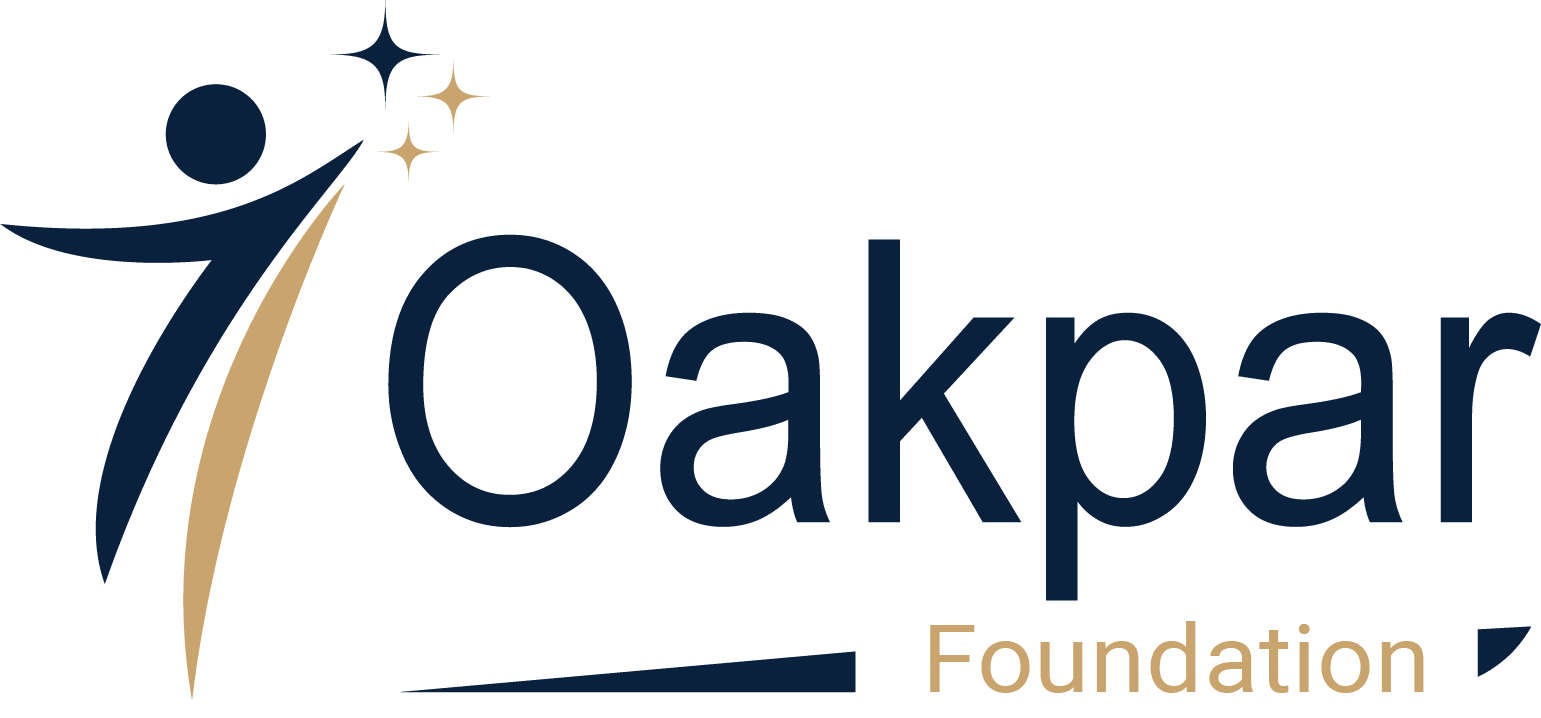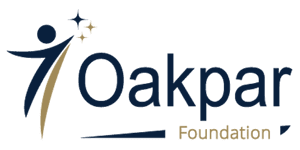In this “UN Special” Series, we explore the actions and achievements of the various organizations of the United Nations. Throughout the series, readers will have the opportunity to learn how these agencies work collaboratively, facing global challenges and promoting peace, social justice and environmental sustainability. From Promoting Gender Equality to Preserving the Environment, From Pursuing Clean Energy Sources to Disseminating Global Education, the Series Presents the Crucial Roles Played by These Agencies in Building a More Prosperous and Equitable Future for All Nations And Communities.
The operational activities of the Economic and Social Council (ECOSOC) for the development segment play a crucial role in the implementation and annual review of the Quadrennial Comprehensive Policy (QCPR). ECOSOC, as the UN's central body for the coordination of economic and social policies, assumes responsibility for overseeing and evaluating the effectiveness of the organization's actions related to global development.
As of 2019, the implementation of the QCPR became the subject of analysis and review through ECOSOC's operational activities, specific to the development segment, called OEA (Operational Activities for Development). The OAS is a platform that allows ECOSOC to assess in detail the progress and results achieved based on the guidelines established by the QCPR.
In addition, the OAS also plays a key role in reviewing the implementation of resolution AG 72/279, which concerns the repositioning of the UN development system. This resolution seeks to improve and modernize the UN development system, making it more efficient, coherent and aligned with the principles of the 2030 Agenda for Sustainable Development.
In this context, the OAS allows ECOSOC to monitor and analyze advances, challenges and opportunities in the context of UN operational activities for development. Through detailed reporting and analysis, this annual review process facilitates a clear understanding of the impact of policies and programs implemented within the UN development system.
Furthermore, this review and review mechanism contributes to strengthening accountability and transparency in the UN development system. When evaluating the implementation of the QCPR and resolution AG 72/279, ECOSOC can recommend adjustments and improvements in the policies and approaches adopted, seeking to optimize efforts in favor of global development.
In view of this, financing for the United Nations development system has been a matter of extreme relevance for the operations and achievement of the organization's global objectives. In 2021, the total amount of funding reached US$ 46.5 billion, representing a significant increase of 8% compared to the previous year.
Within this amount, the core funding corresponded to 21%, while the other 79% was comprised of non-core funding. There is a growing trend towards directing non-core contributions towards blended funding mechanisms such as inter-agency joint funds. In 2021, contributions to these joint funds increased for the sixth consecutive year, surpassing the US$ 3.4 billion mark, representing growth of 13% year-on-year. In addition, funding for agency-specific thematic funds also increased for the fifth year in a row, reaching nearly US$ 1.2 billion, with an increase of 12%.
However, it is important to mention that not all global joint funds performed well in terms of funding. The Joint Sustainable Development Goals Fund and the Peacebuilding Fund experienced reductions in their funding in 2022, which may have implications for operations and projects related to these critical areas.
A long-term analysis of funding reveals consistent and robust growth. Over the last 10 years, total funding for the United Nations development system has almost doubled in real terms, demonstrating the growing support and commitment of Member States and partners to the cause of global development. This growth was mainly driven by the increase in non-core contributions, although core funding also saw a significant increase of 44% over the last decade, when adjusted for inflation.
Ensuring adequate and sustainable financial resources is critical to the success of UN activities and initiatives in the field of sustainable development. The increase in funding over the years demonstrates the recognition of the importance of these actions in promoting peace, equality, eradicating poverty and protecting the environment. However, swings in funding for certain global joint funds underscore the continued need for commitment and joint efforts to overcome challenges and address global crises.
Therefore, the General Assembly reaffirmed this direction when revising the system of resident coordinators in 2021, as per resolution 76/4. This measure reflects recognition of the importance of resident coordinators in the context of repositioning the UN development system, reiterating the need to maintain and improve their strategic role.
The new generation of United Nations country teams and the reinvigorated resident coordinating system have the potential to play a crucial role in promoting a unified and effective approach to achieving the SDGs. Empowering resident coordinators and strengthening their leadership and coordination skills will allow for more agile and effective action by national teams, providing comprehensive and integrated support to countries in their sustainable development goals.
At the country level, United Nations teams have adopted an improved approach to planning and resource allocation aimed at achieving the Sustainable Development Goals (SDGs). Through the Development Cooperation Frameworks, these teams are providing a detailed analysis of the volume and mix of resources needed to implement their development initiatives. These funding frameworks have become a key tool to replace common budget frameworks, allowing for a more efficient and informed approach to using available resources.
A crucial feature of the Cooperation Frameworks is that they are updated annually, ensuring that the perspective on available resources and funding gaps is always current and realistic. Currently, of the 109 UN country teams that have a Cooperation Framework, around 68% (74 teams) have implemented the annually updated Funding Framework. These numbers tend to increase in the coming years, as the Financing Frameworks are developed after the finalization of the Cooperation Framework and the definition of the United Nations country team.
The Funding Frameworks not only provide a detailed breakdown of required resources, but also outline a strategy for ensuring adequate funding. This includes identifying and targeting different types of resources, such as core, grouped at country level, thematic, and other non-core. In this way, funding structures help to diversify funding sources and ensure a more comprehensive approach to fundraising.
Likewise, transparency is a fundamental principle in the Funding Tables, as 84% of these structures contain information disaggregated by source of funding and 77% disaggregate resources by type of funding. This detailed and segmented approach allows for a clear understanding of the source of funds, facilitating monitoring and accountability.
In light of this, Financing Frameworks have become a valuable tool for United Nations country teams in planning and allocating resources for their sustainable development initiatives.
The Role of ECOSOC in the Implementation of Sustainable Development Financing Agreements
The UN Economic and Social Council (ECOSOC) plays a key role in supporting the follow-up and implementation of agreements and commitments reached at major international conferences on financing for development. From the International Conference on Financing for Development held in Monterrey, Mexico, in 2002, to the Conference in Addis Ababa, Ethiopia, in 2015, ECOSOC has been a key advocate in the pursuit of global economic and social agendas.
Through its work, ECOSOC tracks funding related to the outcomes of major United Nations conferences and summits, including the 2030 Agenda and the Sustainable Development Goals (SDGs). This means ensuring that the financial resources needed for sustainable development are properly allocated and in compliance with established international agreements.
An important milestone in ECOSOC's work was the creation of the Financing for Development Forum, as a result of the Addis Ababa Action Agenda. This forum, held annually, is an intergovernmental process with universal participation, with the mandate to discuss the monitoring and review of financing for development results, as well as the means of implementing the 2030 Agenda. importance and are shared with the High Level Political Forum on Sustainable Development (HLPF).
In addition, every two years, ECOSOC hosts the Development Cooperation Forum, which brings together UN Member States to assess global trends in development cooperation and related commitments. In this space, ways of accelerating progress towards goals set at previous conferences are discussed.
ECOSOC also plays an important role in hosting the high-level meeting with international trade and finance organizations. These meetings are aimed at strengthening partnerships and sharing knowledge about financing, as well as boosting cooperation between entities involved in the development process.
Since 2016, high-level meetings have been incorporated into the Financing for Development Forum, further reinforcing ECOSOC's commitment to advancing adequate and effective financing for sustainable development.
The 2023 ECOSOC Forum Paper on Financing for Development highlights the relevance of developing dynamic domestic private sectors as a key strategy for achieving the Sustainable Development Goals (SDGs) in a sustainable and equitable manner. To this end, it emphasizes the importance of creating and strengthening a favorable business environment that encourages and facilitates private investment in sustainable development initiatives.
In this context, international cooperation plays a crucial role in exploring policies and tools that overcome obstacles to private investment for sustainable development. In this way, measures will be taken to guarantee and improve the access of micro, small and medium-sized enterprises (MSMEs) to finance, including trade finance, with the aim of increasing their participation in international trade, investment and the digital economy.
Another aspect highlighted is the need for technical assistance and training support to promote investments and develop bankable projects and initiatives. The United Nations development system, the World Bank and other multilateral institutions play a key role in addressing capacity and financing gaps in sustainable and quality infrastructure, especially in developing countries, working through existing initiatives. The ECOSOC Forum encourages the search for innovative solutions that unlock investments in support of the SDGs, such as the SDG Investment Fair, STI for SDGs Roadmaps and UN Global Compact.
In addition, the document highlights the importance of multi-stakeholder partnerships to promote long-term strategic investment in the SDGs. These partnerships, which involve the public and private sectors, can drive innovative finance for sustainable development, including through the issuance of bonds dedicated to the Sustainable Development Goals.
To drive these efforts forward, the ECOSOC Forum highlights the role of the Global Investor Alliance for Sustainable Development, convened by the Secretary-General. This alliance aims to facilitate the expansion of private finance and investments for sustainable development, offering concrete guidance, products and instruments to promote action towards the SDGs.
Furthermore, the document encourages development partners to reinforce their commitments with Official Development Assistance (ODA), including the objective assumed by many developed countries to allocate 0.7% of Gross Domestic Product (GDP) in revenues for public assistance to the development (ODA/RNB). In addition, it highlights the importance of allocating between 0.15% and 0.20% of Gross National Income (GNI) to ODA for the benefit of less developed countries. It also emphasizes the need to ensure that such funding is provided through grant and highly concessional funding, especially for least developed countries, and also to consider grant and concession funding for other vulnerable countries, such as landlocked developing nations and small developing islands. As such, ODA recognizes that other concessional finance is still critical for many middle-income countries.
In this context, international cooperation for development is imperative, with special emphasis on North-South cooperation. Furthermore, South-South cooperation is also a relevant element, complementing, but not replacing, North-South cooperation.
In this way, it reinforces the continued support for efforts to improve the quality, effectiveness and impact of development cooperation, as well as other international efforts in public finance. Adherence to the principles of effective development cooperation is fundamental to optimizing results and achieving effective sustainable development.
Another crucial aspect is to include women and people in vulnerable situations in the formulation of national development plans and in the development cooperation strategies of developing countries and their partners. It is essential to consider national priorities and the specific circumstances of recipient countries in order to ensure that actions are adapted and meet the real needs of vulnerable populations.
Therefore, the document reiterates the need to ensure that the necessary concessional resources are directed to address current risks and meet long-term development needs, with special attention to the most vulnerable.
Encouraging the Participation of Micro, Small and Medium Enterprises in International Trade
The ECOSOC 2023 Forum Document signals that international trade plays a crucial role in boosting global development. In this sense, the commitment to promote a rules-based, fair, inclusive and transparent multilateral trading system is reaffirmed, with the World Trade Organization (WTO) at the heart of this approach. Significant trade liberalization that benefits all nations in a non-discriminatory manner is sought.
It is considered essential that the multilateral trading system contributes to the achievement of the Sustainable Development Goals (SDGs) by ensuring policy space for national development goals, poverty eradication and sustainable growth, in line with relevant international rules and country commitments. Emphasis is placed on preferential trade access for developing countries, special and differential treatment, taking into account their specific needs, and the elimination of trade barriers that do not comply with WTO agreements.
The commitment of WTO members to work towards the necessary reform of the organization is acclaimed, with the aim of improving all its functions and effectively addressing the challenges of global trade. The importance of ensuring the normal functioning of open markets, the connectivity of global supply chains and cross-border travel for essential purposes is recognized. It is committed to strengthening the sustainability and resilience of supply chains, aiming at the sustainable integration of developing countries.
Participation in the multilateral dialogue on rules and agreements related to investment, trade and technology will continue to be maintained, seeking to ensure equal conditions for fair competition. This will provide all countries with equal opportunities to develop their economic sectors and improve their living conditions.
International trade is recognized as a driving force for sustainable development, and multilateral cooperation is considered essential to ensure a prosperous and equitable future for all nations. The promotion of a fair and inclusive trade system, the strengthening of supply chains and the search for an equitable approach in trade rules and agreements are committed actions in favor of global sustainable development
According to the document, Member States are invited to effectively explore the use of Special Drawing Rights (SDRs), seeking to encourage the rapid voluntary channeling of these resources to the most needy countries, including through Multilateral Financial Institutions (MDBs) and the International Monetary Fund. It is important that this is done respecting the relevant legal frameworks and maintaining the reserve asset character of the SDRs.
It is recommended to expand regional mechanisms to increase liquidity in crisis situations, which can be achieved by strengthening regional financing arrangements.
Regulators and central banks are encouraged to consider, when supported by sound scientific evidence, the consistent incorporation of climate change and other environmental factors into their macroprudential policies, financial stability frameworks, financial regulations and central bank operations, in accordance with their respective mandates.
It is noted that credit ratings play an important role in international capital markets, providing lenders with assessments of a borrower's relative risk of default. As such, it is essential that credit rating agencies ensure that their ratings are objective, independent, forward-looking and based on sound information and analytical methods. It emphasizes the need to address over-reliance on rating agency assessments, including regulations, and to promote greater competition as well as measures to avoid conflicts of interest in the issuance of credit notes. The feasibility of creating public rating agencies is also considered as an option to be considered by the Member States.
International Cooperation for Sustainable Technological and Financial Development
The 2023 ECOSOC Forum on Financing for Development highlights the importance of science, technology, innovation and capacity building in the context of sustainable development. It is committed to creating enabling environments both domestically and internationally for the development of technological capabilities and for promoting inclusive structural change.
The importance of producing high-quality scientific knowledge and strengthening institutional capacity in all countries is recognized as a fundamental means of promoting evidence-based poverty reduction and achieving sustainable development.
The role of financial innovation and technology in promoting financial inclusion is crucial, especially in relation to access, use and quality of financial services for individuals and micro, small and medium-sized enterprises (MSMEs). However, there is also recognition of the need to address the associated challenges, particularly for women and women-led MSMEs, who face disproportionate challenges in this context.
Of particular note are the rapid advances in digital financial technology, intensified by the COVID-19 pandemic, which have transformed the provision of financial services and created an ecosystem of assets. In light of this, the importance of closely monitoring domestic and global developments, revising and updating regulatory frameworks as necessary, and cooperating across sectors and borders to support enabling environments that consider both opportunities and risks is emphasized. Furthermore, the United Nations system is requested to continue to support developing countries, through knowledge sharing, technology transfer on mutually agreed terms and capacity building, to more effectively address the opportunities, challenges and implications of the emerging digital financial market.
Efforts to provide universal, meaningful and affordable access to the Internet by 2030 will be strengthened, especially in all developing countries. To achieve this objective, all stakeholders, including the global community, are called upon to support additional actions, such as investments in digital infrastructure, training in digital skills and digital literacy, as well as the promotion of regulatory and policy reforms in this area. It is believed that inclusive technological development and access to the Internet are crucial elements to advance towards the Sustainable Development Goals and to guarantee an equal future for all.
The year 2023 marks a key moment in the follow-up and review of the 2030 Agenda for Sustainable Development and the Addis Ababa Action Agenda. It will be an opportunity to review the progress made so far and to intensify efforts and actions towards these goals. The expectation is that the High-Level Political Forum on Sustainable Development, convened by the Economic and Social Council, the Summit of the Sustainable Development Goals and the High-Level Dialogue on Financing for Development, under the coordination of the General Assembly, will take place. It is essential to ensure coherence and complementarity in discussions related to the financing of sustainable development.
Also, in 2024, the Future Summit is expected. In this way, the strengthening of collaboration and dialogue between the UN, international financial institutions and the Group of 20 is encouraged. The Secretary-General proposed the convening of a biennial summit to promote a more sustainable, inclusive and resilient global economy, which is of great relevance. The importance of including multilateral discussions on macroeconomics and financial issues in the United Nations and other forums, seeking the inclusion of all interested parties, is highlighted.
The General Assembly approved resolution 77/156 and it is expected that there will be deliberations on the convening of a fourth international conference on financing for development in 2025, with the appropriate development of the corresponding modalities. Commitments made at previous UN international conferences on financing for development will be taken into account. It is in this context that the engagement and cooperation of all actors will be essential to significantly advance towards global sustainable development.




